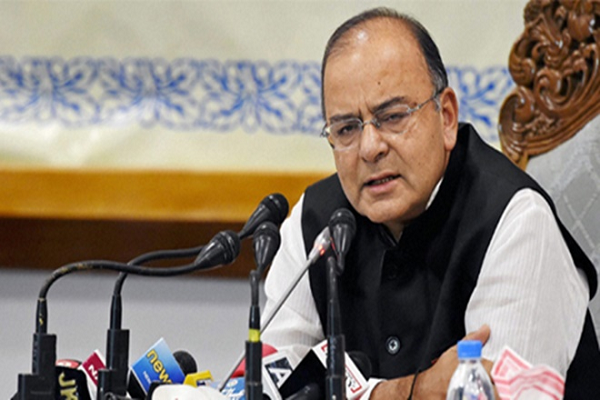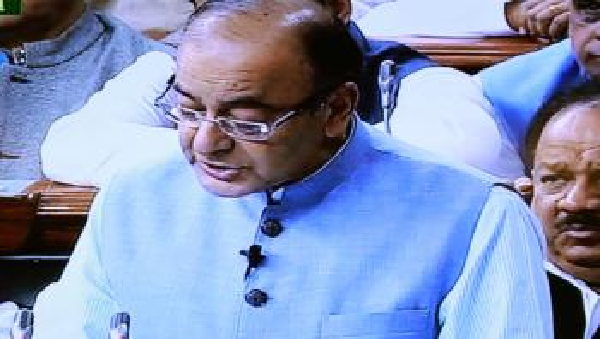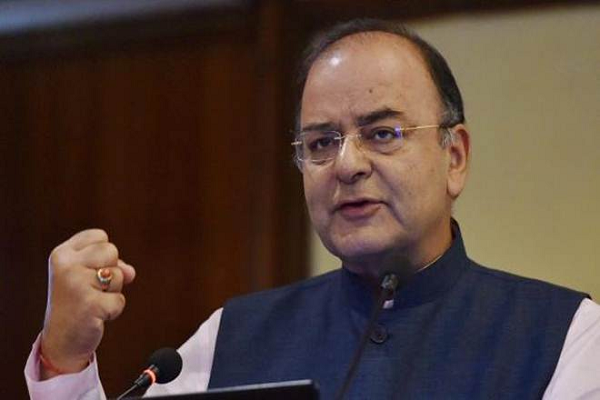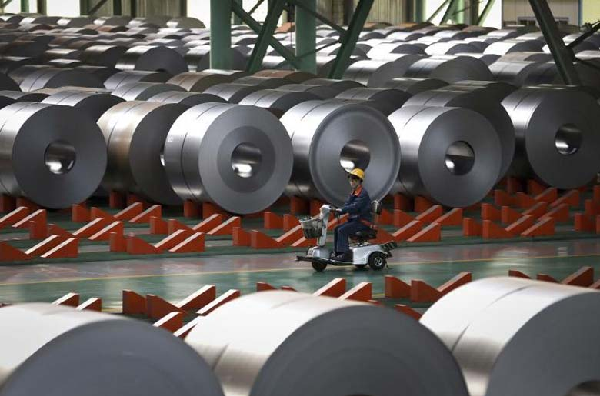
by admin | May 25, 2021 | Employment, News, Politics
 New Delhi (IANS) Finance Minister Arun Jaitley said on Friday that the Aadhaar law will ensure that all genuine beneficiaries are covered under the Direct Benefit Transfer (DBT) scheme and will help in reducing leakages.
New Delhi (IANS) Finance Minister Arun Jaitley said on Friday that the Aadhaar law will ensure that all genuine beneficiaries are covered under the Direct Benefit Transfer (DBT) scheme and will help in reducing leakages.
“DBT scheme is a very important scheme as it transfers the benefit to the intended targeted beneficiaries,” Jaitley said while chairing the third meeting of Consultative Committee on DBT. attached to his ministry, a finance ministry release said.
“He (Jaitley) said that Direct Benefit Transfer ensures that benefits reach the targeted population and helps in reducing leakages,” the statement said.
According to the statement, some members of the Committee suggested that the Banking Correspondents scheme should be further strengthened to ensure that there is last mile coverage of beneficiaries.
Responding to the queries raised by the members, Jaitley said that Parliament has passed the Aadhaar Act and “there are provisions in the legislation to take care of the issues raised”.
As on May 31, 74 schemes of 17 ministries and departments were being reported on DBT, the statement added.

by admin | May 25, 2021 | Economy, News
 Raipur (Chhattisgarh), (IANS) Union Finance Minister Arun Jaitley on Monday said the Indian economy was capable of withstanding any adverse condition, and that the cycle of ups and downs was ever-continuing.
Raipur (Chhattisgarh), (IANS) Union Finance Minister Arun Jaitley on Monday said the Indian economy was capable of withstanding any adverse condition, and that the cycle of ups and downs was ever-continuing.
Speaking at the first national conclave on mines and minerals in the state capital, Jaitley said the mining sector the world over was facing a crisis and prices of all types of ores/minerals were falling but India remained unaffected.
He said he hoped that India’s Gross Domestic Product will grow at a faster rate in view of predictions of a good monsoon this year.
The minister said income from the sale of ores/minerals extracted from a particular state should be used for the development of the region/area concerned, for which the government had formulated the Pradhan Mantri Khanij Kshetra Kalyan Yojana (Prime Minister Mining Areas Welfare Scheme).

by admin | May 25, 2021 | Corporate, Corporate Buzz, News
 Mumbai:(IANS) Caught unawares by the UK’s decision to pull out of the European Union, Indian financial markets went into a tizzy on Friday to see a 4 per cent fall in a key equity index and a sharp drop in the rupee’s value to 68 a dollar before the authorities sought to calm investor mood.
Mumbai:(IANS) Caught unawares by the UK’s decision to pull out of the European Union, Indian financial markets went into a tizzy on Friday to see a 4 per cent fall in a key equity index and a sharp drop in the rupee’s value to 68 a dollar before the authorities sought to calm investor mood.
By the time the Indian stock markets opened, it was becoming clear that Britons had voted in the crucial referendum to opt out of the European Union. This led the sensitive index (Sensex) of the BSE to open at 26,367.48 points, against the previous close at 27,002.22 points.
This was a fall of 634.74 points, or 2.35 per cent. But as the actual result came in, the markets, which had just a day ago felt that the UK will remain in the EU, were further shaken. At that point, the Sensex was languishing at 25,911.33 points, down as much as 1,090.89 points, or 4.04 per cent.
But statements by Finance Minister Arun Jaitley and the Reserve Bank of India Governor Raghuram Rajan, appeared to have calmed the sentiments somewhat. The key index finally closed the day at 26,397.71 points, down 604.51 points, or 2.24 per cent.
This was the lowest fall in percentage terms since May 12, 2015. This wiped off nearly Rs 3.3 lakh crore in the market capitalisation of BSE listed stocks.
The Nifty of the National Stock Exchange also recouped some losses and ended at 8,088.60 points, down 181.85 points, or 2.20 percent. Forty five of the 51 scrips that comprise the Nifty ended lower, while six bucked the trend.
The markets had anticipated a “remain vote” in the UK referendum and key indices had gained a little over 0.8 per cent on Thursday.
But as the markets started plummeting, both the finance minister and the central bank governor issued quick statements.
“The government and the Reserve Bank of India as well as other regulators are well prepared, and working closely together, to deal with any short term volatility. Our aim will be to smooth this volatility and minimize its impact on the economy in the short term,” Jaitley said.
“At the same time, for the medium term, we will steadfastly pursue our ambitious reform agenda — including early passage of goods and services tax (bill) that will help us realise our medium term growth potential of 8-9 per cent and help achieve our objective of development for all.”
Rajan’s comments were similar, focusing on India’s economic fundamentals, and were particularly aimed at the currency markets — that saw the Indian rupee take the sharpest hit since August 2015 and plunge to 68.21 to a dollar.
“The Reserve Bank of India is continuously maintaining a close vigil on market developments, both domestically and internationally, and will take all steps, including providing liquidity support (both dollar and rupee), to ensure orderly conditions in financial markets,” Rajan said.
The Bank of England too made some responsible statements.
“We are well prepared for Brexit. We are ready to provide additional funding of 250 billion pound sterling. We are also ready to meet additional substantial liquidity needs if required,” Governor Mark Carney said at a press conference in London.
Just around that time, the pound had dropped 11 per cent to its lowest level in more than three decades to $1.3224. It could not recoup much.
The rupee also took a major beating of as much as 96 paise and fell to an intra-day low below 68 to a US dollar. It eventually closed around 71 paise lower at 67.96-97 against the dollar.
Taking a closer look at Indian equity markets, all the 30 Sensex scrips were in the red at one point. But by the end of the trading session, seven managed to go into the green. Tata Motors and Tata Steel were the worst performers, while Mahindra and Mahindra and Bajaj Auto ended higher.
But none of the sector-specific indices could close higher. The steepest fall was in the realty index, down 3.74 per cent, followed by the index for industrials, down 3.62 per cent, and metals, which fell 3.59 per cent, due to Tata Steel’s weight.
“It helped that the finance minister and the central bank governor reassured investors that India’s economic fundamentals are strong and that everything would be done to curb volatility,” Anand James, Chief Market Strategist at Geojit BNP Paribas, told IANS.
Vaibhav Agrawal, Vice President and Research Head at Angel Broking, said: “Global markets will continue to be under pressure due to volatility in currency and bond markets in the days to come.”
During the day, foreign funds were net sellers of shares worth Rs 629.14 crore, while domestic institutional investors were net buyers, investing Rs 114.94 crore.

by admin | May 25, 2021 | News, Politics
 New Delhi (IANS) Finance Minister Arun Jaitley on Wednesday said the UK has turned down India’s request for deportation of liquor baron Vijay Mallya, but added that he can be extradited once a chargesheet is filed against him.
New Delhi (IANS) Finance Minister Arun Jaitley on Wednesday said the UK has turned down India’s request for deportation of liquor baron Vijay Mallya, but added that he can be extradited once a chargesheet is filed against him.
Jaitley, who is Leader of House in Rajya Sabha, was speaking after Janata Dal-United (JD-U) member Sharad Yadav raised the issue in the house.
“Government has said we will get him back. UK has clearly denied it and said there is no question of sending him back. This man took so many things from here and government was sleeping,” Yadav said.
Jaitley, in response, said that his deportation was sought by the investigative agencies, but was turned down by the UK.
“Investigative agencies are probing the wrongdoings. In course of the investigation, since his diplomatic passport has been cancelled, the investigative agencies sought his deportation,” Jaitley informed the elders.
The minister, clarifying that he is still collecting information, said: “What I have got to know so far is that deportation is not allowed when a person entered on a valid passport and then the passport is cancelled.”
“The process is that when a chargesheet is filed, we seek extradition. It is another legal process,” he said.
Jaitley added the UK has done it in the past as well.
The British government has turned down India’s request to deport Mallya and has called for requesting mutual legal assistance or extradition.
“They have asked the Indian government to consider requesting mutual legal assistance or extradition,” MEA spokesperson Vikas Swarup said in a statement on Wednesday.
Mallya was a member of Rajya Sabha before he sent his resignation last week. The resignation came as the ethics committee of the upper house had recommended that he should be expelled.

by admin | May 25, 2021 | Corporate, Corporate Reports
 New Delhi, (IANS) The steel industry accounts for the largest proportion of the non-performing assets (NPAs) of banks, Finance Minister Arun Jaitley told the Lok Sabha on Thursday.
New Delhi, (IANS) The steel industry accounts for the largest proportion of the non-performing assets (NPAs) of banks, Finance Minister Arun Jaitley told the Lok Sabha on Thursday.
“The biggest contributor in the NPAs is the steel sector. Because if our companies are not able to sell their steel, it is obvious they will not be able to repay bank loans and the interest upon it,” Jaitley said replying to the debate on the Finance Bill, 2016-17.
The Finance Bill 2016-17 was on Thursday passed by the Lok Sabha. The Bill now goes to the Rajya Sabha, which has to return it for the budgetary exercise for 2016-17 to get completed.
Jaitley said the Indian steel industry has been weakened by the dumping of Chinese steel at below cost-level prices. The sector has in turn affected the banks’ balance sheets, he said.
“When the business cycles are weak in some sectors during global headwinds, then not only the sector goes weak, but it affects the banks’ balance sheets. It is called twin balance sheet problem,” Jaitley said.
Some loans which have turned bad might have been given on a wrong basis, and such cases will be investigated, the minister said.
“(Out of) the current NPAs … there are some which have been given on a wrong basis. It will be investigated into … I do not want to go into the details of who was responsible for the same,” he said.
Jaitley said the government was committed to bringing the banks out of the financial crisis and the NPA issue can be resolved only if the bad assets are reflected properly on the balance sheets, and not kept hidden.
The top 50 defaulters of public sector banks had exposure in excess of Rs 1.21 lakh crore as on December 2015, the Minister of State for Finance Jayant Sinha had told Parliament on Tuesday.
Jaitley said: “We are working upon making laws for the banks to deal with the current situation of rising NPAs. Bankruptcy Bill has already been tabled in the Parliament.”
The finance minister also said that below average monsoon had an impact on the economy in the last two years and an expected normal monsoon this year will revive the rural economy.
Jaitley also outright rejected suggestions from some opposition members to bring agricultural income under the tax net, saying this is not being considered at all.
He said that, firstly, large farm-based income was rare and people using agriculture as a front to hide income from other sources need to be dealt with by the tax authorities.
The finance minister asserted that despite global recession, the Indian economy is doing well.
He pointed out that despite the global recession and uncertainty prevailing on how long the crisis will remain, India still continues to maintain a high growth rate at 7.65 percent in 2015-16 compared to 7.2 percent in 2014-15.
On the issue of one percent excise duty on non-silver jewellery, the finance minister ruled out its rollback, saying the levy was not applicable on small traders and artisans. Only those jewellers with more than Rs.12 crore turnover will attract the duty, he said.
Responding to criticism that government’s steps have often been against people-oriented schemes, Jaitley said: “In all the three budgets this government presented, we tried to ensure that small tax payers have more money in their hands.”

 New Delhi (IANS) Finance Minister Arun Jaitley said on Friday that the Aadhaar law will ensure that all genuine beneficiaries are covered under the Direct Benefit Transfer (DBT) scheme and will help in reducing leakages.
New Delhi (IANS) Finance Minister Arun Jaitley said on Friday that the Aadhaar law will ensure that all genuine beneficiaries are covered under the Direct Benefit Transfer (DBT) scheme and will help in reducing leakages.



